Translation Principles Followed
Principle #1 - Faithful
Principle #1, and of chief importance, is the principle of being faithful to the original content. The objective is to keep the translated material as untainted as possible - presenting no more, and no less, than what the original audience would have understood.
Of course, the original texts no longer exist. All translations work from manuscripts that are copies of the originals.
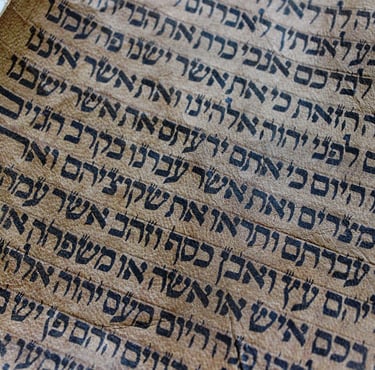



Principle #2 - Scholars
Principle #2 involves listening to the scholars. Certain passages of the Hebrew Scriptures are not entirely clear, at times allowing more than one interpretation. A lot of research carried out by scholars is available in commentaries or journals. Many of these valuable resources have been consulted and, at times, are quoted in footnotes and appendices.
The Ultimate Drama series adheres to certain translation principles in its endeavor to bring out the drama, while at the same time striving to maintain an accurate expression of the original message.
Principle #3 - Meaning
Principle #3 centers around making each biography easy to follow and understand, focusing on the meaning intended by the original rather than sticking to the original's form. In other words, The Ultimate Drama is a meaning-based translation rather than a literal one. If a translation follows the grammar and words of the original language too closely, the translation may turn out unnatural, confusing, and may even give the wrong meaning altogether. The Scriptures contain material that is meant to be understood. That's why, when it was first written, it was written in the everyday language that people of that time period spoke.




Principle #4 - Discourse
Linguistic concepts are taken into consideration during the translation process. Particular focus is given to the discourse level - the level above the word and sentence levels. Each language has its own preferred way of presenting information naturally for its own audience.
English operates very differently than Hebrew of 3000 years ago. So, in addition to the need to be accurate, the translated text also needs to sound clear and natural.
Principle #5 - Verses
Verse numbers are entirely excluded.
When the Bible was first written (both the OT and NT), there were no verse or chapter numbers. Those divisions were added much later in history. Stephen Langton added the chapter numbers to the Bible in 1227. Robert Estienne numbered all the sentences (verse numbers) in the New Testament in 1551. The versification of the Old Testament took place in 1571.




Principle #6 - Implied
Implied information is periodically included. Implied information is data that the original author would have expected the readers to be familiar with. The author wouldn't have needed to state the implied information since it would have been obvious (common knowledge) for his original audience. But for today's audience, thousands of years later, who are typically unfamiliar with the culture and layout of the land, leaving out that data will leave big gaps in their understanding of the text.
Principle #7 - Oral
The Ultimate Drama is written with listeners in mind, with the realization that the Bible is often read out loud.
Although Maxey's research focused on the NT, the same would hold true for the OT, both were "composed in a predominantly oral culture and was created to be heard by a communal audience" (p.125). The hope is that when it is read, the Ultimate Drama will bring out the drama in natural sounding English. The translation needs to be accurate and clear, but should also sound natural, beautiful, and be dramatic.


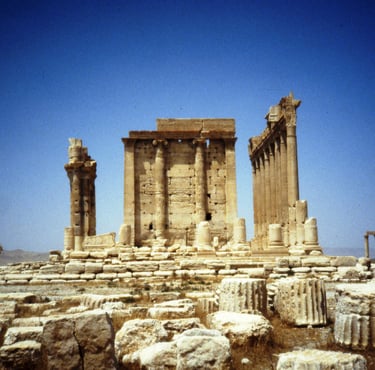

Principle #8 - History
Since the OT was written within specific historical and cultural settings, those settings have not been ignored during the translation process. Therefore, even though the goal of the Ultimate Drama is to sound natural in today's English, at times certain thoughts will be phrased in such ways so as not to ignore those historical and cultural settings.
Principle #9 - Footnotes
Footnotes are used to explain choices made in the translation or, as mentioned earlier, to give an explanation, or indicate when material has been adjusted, added, or left out for some reason.
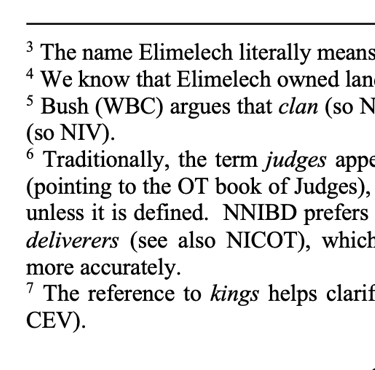

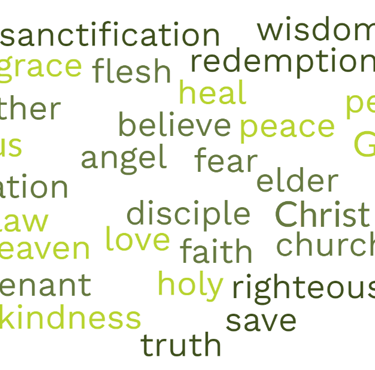

Principle #10 - Key Terms
A few Key Terms may sound unfamiliar. Key Terms are chosen to reflect the intent of the original text, and therefore may not always be the terms that readers are most familiar with from reading other translations.
The first time a Key Term occurs within a given story, a footnote will either give an explanation, or may point the reader to an Appendix, Key Biblical Terms, where they will find notes about the specific Key Term in question.
Principle #11 - Speech
At times it is deemed beneficial to change narrative to speech. For example, in Jonah 1:5 the original has the throwing of the cargo into the sea stated as part of the narrative, whereas the Ultimate Drama places the information into the captain's mouth, by having him order the crew, "We need to lighten the load! Throw all the cargo overboard." The same content is being expressed, but having someone express the information is preferable for the dramatic effect. This principle is used sparingly.


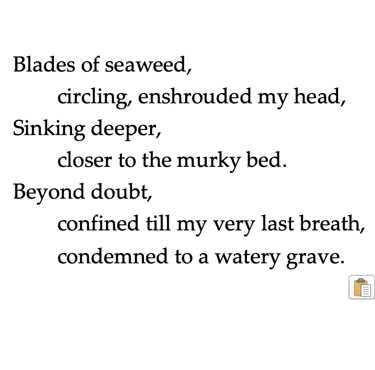

Principle #12 - Poetry
The fact is that nearly one third of the Old Testament is written using poetic style (Zogbo & Wendland). Most English translations merely employ indentations to give the impression of poetry, but are not actually translated poetically. The Ultimate Drama, on the other hand, endeavors to translate the thoughts by expressing them in English poetic style, as in chapter 2 of the Jonah story.
Principle #13 - Sense
A translation should always attempt to make sense. Choices often need to be made, and the best possible option should be employed.
Remaining literal is obviously a choice, but if the literalness potentially results in a nonsensical understanding, then it should not be considered the best choice. The Ultimate Drama keeps this principle in mind. If more than one option exists, then one will be used in the translation while any other possible choices will be mentioned in a footnote or in Appendix 3, Translation Decisions.


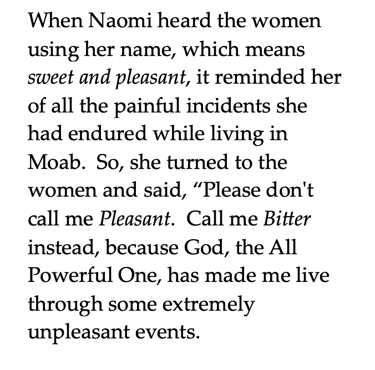

Principle #14 - Names
Names of people and places in the OT have meaning, and at times it helps to give the meaning, especially when it holds some significance. For example, in the story of Ruth, Naomi's name means pleasant, and is an important fact to know when comparing it to her actual life experience which had been bitter. A second example is found in Gen 12:6 where we come across a reference to the oak of Moreh (ESV). The LXX leaves out the word Moreh and merely refers to an oak tree. The Hebrew word Moreh means teacher, and therefore The Ultimate Drama opts for the meaningful translation, The Teacher's Oak.
Principle #15 - Paranthesis
From time to time the original contains parenthetical information within the text itself which is better dealt with differently.
For example, in Gen 14:2 in the Abraham story, after the town's name, Bela, is stated, a parenthetical note follows, "that is, Zoar)" (NIV). The Ultimate Drama removed the parenthetical note and placed it in a footnote. The original note was meant to help the reader/listener, but our current audience is unfamiliar with either name, so including the parenthetical note would actually end up becoming a distraction rather than a help.


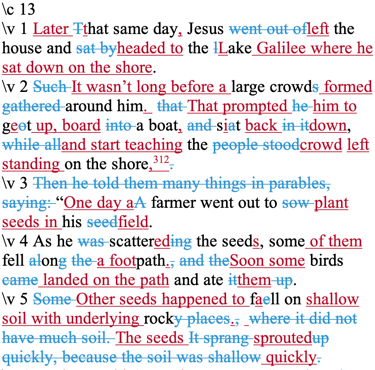

Principle #16 - Revisions
No translation is ever 100% accurate.
There is always room for improvement, whether it's a need for some minor re-wording, or some more serious revisions based on new evidence found as a result of further research. In other words, the translation process needs to be carried out as accurately and faithfully as possible, knowing that some further revisions will most likely need to be made at some point in the future.
Principle #17 - Maps
The inclusion of a map is at times beneficial for readers who may be unfamiliar with the layout of the land. For instance, in Gen 14:1-12, when king Kedorlaomer and his allies attacked the region, we are presented with a lot of geographical information which may be meaningless unless a map is included to help orient the reader. For example, in chapter 4 (which includes all of Gen 14) of The Ultimate Drama Abraham biography, a simple map has been inserted with the names of the cities that have been mentioned.
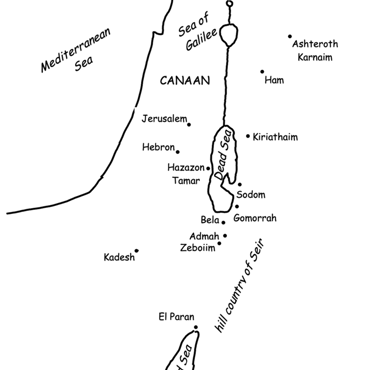

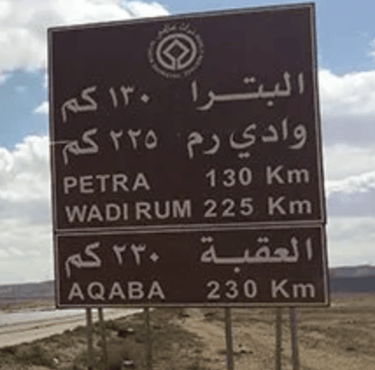

Principle #18 - Distances
The original readers would have had a good idea about directions as well as the distances between locations being mentioned in the OT, whereas today most readers do not. Therefore, at times, within The Ultimate Drama distances (given in kilometers) have been inserted. For example, in Gen 11:31 The Ultimate Drama reads, “900 kilometers later, they arrived at the city of Charran.”
Principle #19 - City Names
At times more modern names were used by the author which would have been familiar to the populace at the time he was writing, instead of, or in addition to, the historically accurate names when the event actually took place. For example, in Gen 13:18 the MT refers to Hebron even though that city didn’t actually become known as Hebron until after the occupation of Canaan (Joshua 14:15). The next time Hebron is mentioned is in Gen 23:2 where the author included the name Hebron as parenthetical material while the actual name, Kiriath Arba, was used to refer to the city. For historical accuracy, rather than follow the MT, The Ultimate Drama used the actual name, Kiriath Arba, for the city in both Gen 13:18 and Gen 23:2.
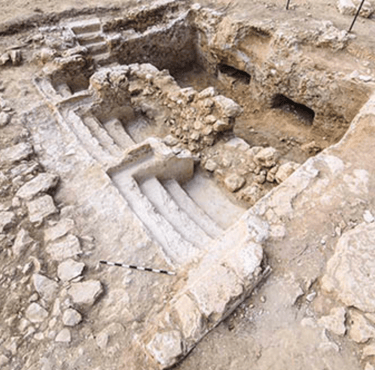



Principle #20 - Summaries
The MT often starts new scenes with a summary statement, which for English discourse can come across as a spoiler. For instance, in the MT, Gen 18:1 begins with “The LORD appeared to Abraham” (NIV), informing us, in typical concise Hebrew discourse style, what the following scene is all about. And then, in the verses that follow, we are given the details of what took place. For English discourse, it is better to leave out this summary statement and rather permit the scene to unfold on its own, allowing the suspense to build as to who these three men were.
Principle #21 - Setting
At times it is helpful in English to provide the setting of the scene. For example, at the beginning of Gen 14, rather than just begin with the facts of who fought against each other, it seemed useful to add a brief sentence to provide an introduction to the conflict that was to follow, “While Abram was living in Canaan, war broke out in that region of the world.”


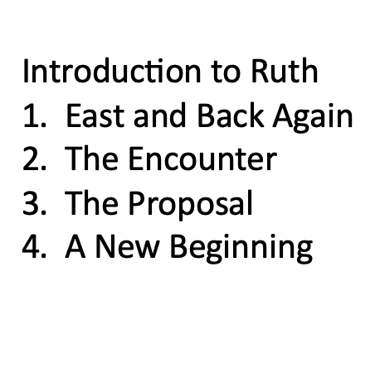

Principle #22 - Titles
Most Bible translations have added titles to divide off sections from one another. Some are more helpful than others, and some are too detailed and can function as spoilers. The Ultimate Drama attempts to use titles which hint at what’s in focus in the chapter.
